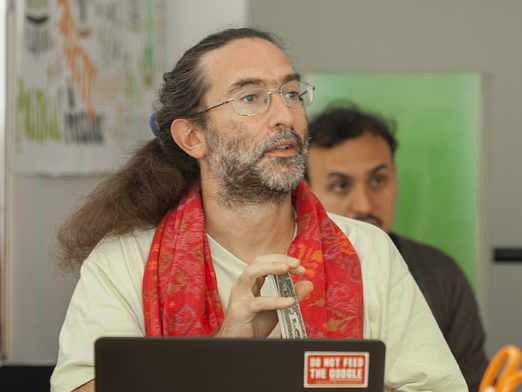Most of my readers will probably have heard of the travails of the Bangla Pesa project in Kenya, which is facing a court case for forgery and is now seeking to raise EUR 47,000 to defend itself in court and, if successful, to replicate the model elsewhere.
The movement understands well that central banking is a global cartel which owns the economics profession, and which consequently believes that bigger currencies are safer, more reliable and more useful than local currencies. Consequently, they will seek to 'protect' the public from abuses, pyramid schemes and competitive innovation.
Two years ago, Bernhard von Nothaus was locked up for forgery, 'a unique form of domestic terrorism', for issuing silver coins and encouraging their use as a means of payment. The movement barely shrugged, perhaps because it doesn't like specie money, or because von Nothaus was 'bear baiting'. The IRTA distanced itself in a press release, stressing that business barter schemes were not affected. But who can blame anyone for not setting themseslves against IRS, Federal Reserve, and US government?
The situation in Kenya is quite different though. Slum dwellers, literally minding their own businesses, now face a total of 42 years in jail (see the penal code 367(e) page 121) if the forgery charge is upheld. Legal fees are projected at EUR20,000 Worse than that, there will be a chilling effect for currency projects in Africa. We would rather be working with large NGOs like Oxfam and International Labour Office to implement methodologies like Bangla Pesa throughout the field of international development. Don't forget, in the first 2 weeks of operation, 109 small businesses in the Mombassa slum saw an average 20% increase in turnover. On a project that cost EUR 4000 to implement, this indicates a 'bang for your buck' that puts most development projects in the shade.
So to me, Bangla Pesa is a test case, and it stands on the front line of the movement in the 21st Century. If you can't give much money, what else can you do?
- make the case known to institutional donors
- raise awareness through your blog
- feed the story to bloggers and journalists
- inform anyone you know in kenya
- write to the central bank or the attorney general.

Comments